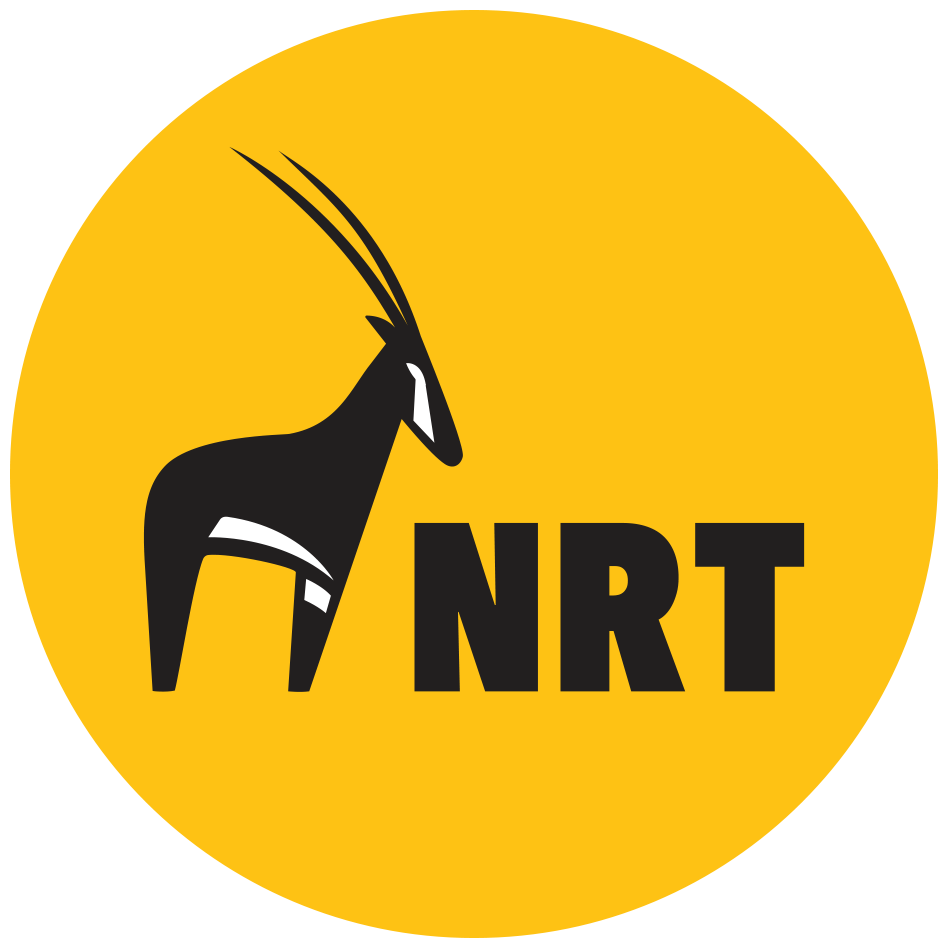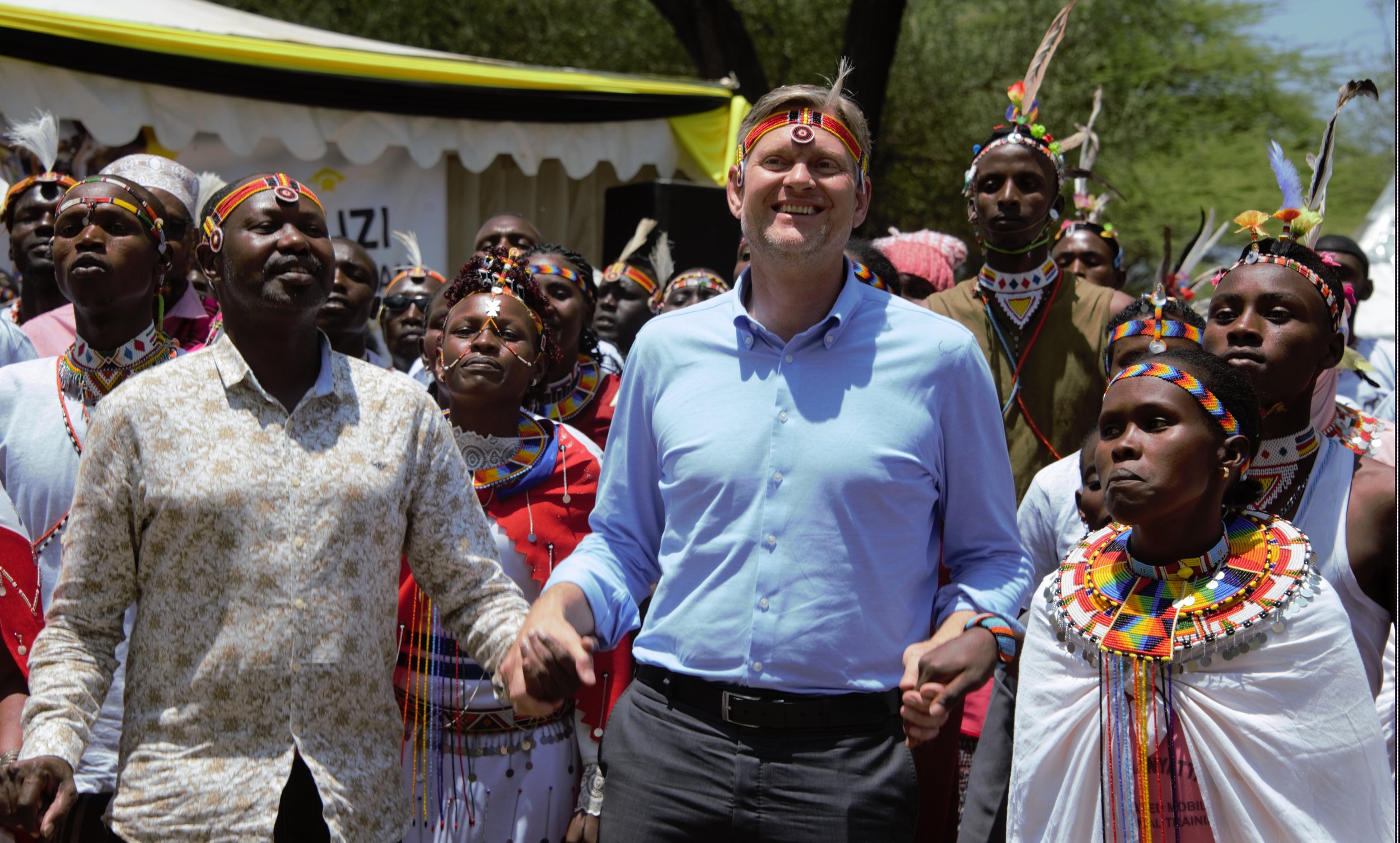Joy, Excitement as Ujuzi Manyattani Graduates 337 Women and Youth
NRT’s Board Chairman Dr. Julius Kipng’etich issues a toolkit to a beneficiary of the Ujuzi Manyattani program.
On April 6, at least 337 youth and women graduated from NRT Trading’s Ujuzi Manyattani Programme, marking the third graduation of the vocational training initiative which has benefited 546 people since its inception in 2019.
Graduands from Nakuprat-Gotu, Nasuulu, Ltungai, Shurr, Jaldesa, and Songa community conservancies graduated after a three-month intensive training, gaining vocational skills that will enable them to take advantage of the growing infrastructure investments in northern Kenya as a result of Vision 2030 and devolution.
Ujuzi Manyattani is a vocational training delivery model that aims to give alternative livelihoods to indigenous communities in NRT-member conservancies, encourage entrepreneurship, and break poverty and conflict cycles.
Ujuzi Manyattani graduands display their certificates shortly after the graduation
The programme, led by the Northern Rangelands Trust (NRT) through its enterprise arm, the Northern Rangelands Trust Trading works by placing trainers from partner polytechnics in villages to teach marketable skills. It also provides access to learning for people from disadvantaged socio-economic backgrounds and those who have been unable to access formal education.
In a colorful graduation, which was presided over by the Danish Ambassador to Kenya, H.E Ole Thonke, who was accompanied by USAID Kenya and East Africa Director Aurelia Micko, the graduands who gained skills from marketable courses ranging from masonry, mobile and motorcycle mechanics, catering, hairdressing, welding, tailoring, electrical engineering, and solar installation received certificates and toolkits to enable them to start business ventures.
Within the program's theme of “Upscaling Integrated, Mobile Vocational Training in Northern Kenya”, the youth have been empowered to meet a rising market demand for technical expertise.
Participants and graduands of the Ujuzi Manyattani program celebrating a successful graduation.
In comparison to 2021, when just six women graduated, this year’s enrolment saw an increase in the number of women to 139 who enrolled and successfully graduated.
“Denmark is happy to be part of the Ujuzi Manyattani Programme which is transforming your lives. Technical skills development is the engine of a growing economy. We all know this region is frequently hit by droughts and floods, human population is growing, and the current situation is challenged to support big livestock herds. These challenges are causing nature-based conflicts. By acquiring technical skills, you are having alternatives that will support your livelihoods. So, graduates we encourage you to go and use the skills to change your lives and that of your community. This will change the negative narrative of conflicts to a positive story of community resilience because you have alternative source of income,” says the Danish Ambassador, H.E. Ole Thonke.
Danish Ambassador to Kenya H.E Ole Thonke (in blue shirt) with Samburu County Deputy Governor H.E Julius Leseeto (R) dancing with Ujuzi Manyattani graduands.
The graduates are from Isiolo (192), Marsabit (100) and Samburu (45) and stand to increase their economic opportunities as northern Kenya fully aligns to Vision 2030. Urbanization in northern Kenya is evident with Isiolo’s international airport, the tarmacked road to Ethiopia, a proposed railway line and new resort cities all presenting opportunities for youth to earn a living. Further to these, the vocational model goes a long way in contributing to the Kenyan Government’s ‘Big Four’ agenda that strives to promote job creation for youth as well as deepen industrialization.
“Our goal is to diversify community livelihoods by providing tailor-made training to tap into opportunities emanating from Vision 2030 projects and devolution. We develop learners’ basic literacy and arithmetic skills to aid and catalyze business activities, as we continue to develop resilient community conservancies through the community conservation model,” says Tom Lalampaa, NRT’s CEO.
Ujuzi Manyattani enables pastoralists to acquire practical vocational skills where other training facilities are absent, without disrupting their way of life.
USAID Kenya and East Africa Director Aurelia Micko issues a certificate and a toolkit to Ujuzi Manyattani beneficiary.
The programme is implemented in partnership with the Technical and Vocational Education Training (TVET) in the Ministry of Education, the National Industrial Training Authority (NITA), Kiirua Technical Institute and Laikipia North Technical and Vocational College.
It is supported and funded by the United States Agency for International Development (USAID) through the Local Works program, the Embassy of Denmark through Danida, the Embassy of Sweden through the Integrated Management of Natural Resources for Resilience in Arid and Semi- Arid Lands (IMARA) programme, IUCN Save our Species (Beisa Oryx Project), co-funded by the European Union and The Nature Conservancy with the sole aim of increasing job and business opportunities by creating specific vocational skills that respond to market demands.
Ujuzi Manyattani trainees repairing a motorcycle.






